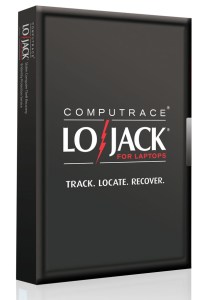
Internet communications and location services can be useful for tracking down lost or stolen devices—but all that tracking can have unintended consequences. A judge has ruled that a couple can sue Absolute Software—developers of the theft-recovery system LoJack for Laptops—after the company intercepted sexually explicit messages and images sent between the couple and shared them with police.
The story is a little convoluted. According to court documents, a laptop computer owned by a Springfield, Ohio, school district was lent to a vocational school student; while at the public library, the laptop was stolen and the theft reported to police. Some time later, another student at an alternative school purchased the laptop—which had had part of its serial number scratched off—for $40, and brought it to one of the plaintiffs, offering to sell it to her for $60. (The student claimed it belonged to his aunt and uncle, and that he had permission to sell it.) The plaintiff agreed on the condition the laptop could get up and running again; a third party re-installed an operating system and software, and the plaintiff took possession of the laptop.
However, the computer still had Absolute Software’s LoJack for Laptops installed, and the company had been logging the system’s IP address whenever it popped up on the Internet. After the plaintiff took possession of the laptop, Absolute Software began intercepting communications on the system, which included sexually explicit messages and webcam images with the second plaintiff, an old high school sweetheart with which the first plaintiff (a 52-year-old widow who works as a substitute teacher) had restarted a long-distance relationship. Absolute Software shared the intercepted communications with the police, who then went to the plaintiff’s house, confronted her with the materials, and placed her under arrest for receiving stolen property. Those charges were dropped a week later.
The lawsuit against Absolute Software—as well as the Springfield, Ohio, police department—alleges that the interception of the private communications violates the Electronic Communications Privacy Act and federal wiretapping laws. The defendants argued that the plaintiffs had no such rights since the notebook was stolen, but federal judge Herbert Rice has ruled that the case can go to trial, finding that a reasonable jury might find that the conduct of Absolute Software and the police department crossed an “impermissible boundary.”
If the case goes to trial—and that’s anybody’s guess, at this point—it may set an important precedent regarding what data can be legitimately collected by device recovery services.


